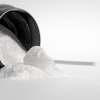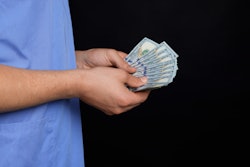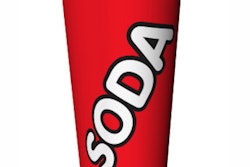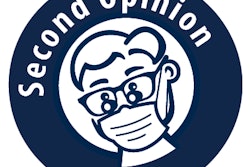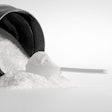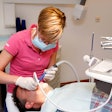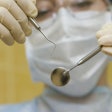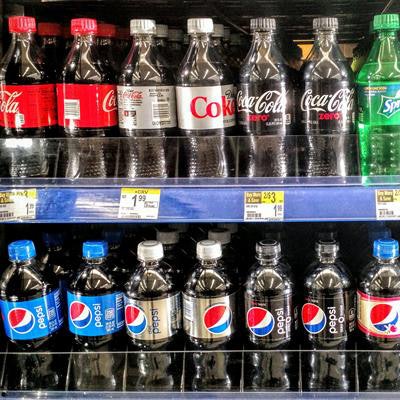
Nearly 100 organizations, including the U.S. government and the National Dental Association, have accepted millions of dollars in sponsorship funds from the Coca-Cola Company and PepsiCo, according to a new study.
After noticing that Coca-Cola and PepsiCo sponsored a few health organizations, researchers Daniel Aaron and Michael Siegel, MD, investigated how pervasive the practice was. Their findings question whether public health organizations can truly promote health when they accept money from companies that sell products that contribute to disease (American Journal of Preventive Medicine, October 10, 2016).
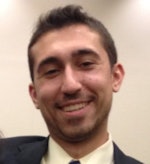 Daniel Aaron, student at Boston University School of Medicine.
Daniel Aaron, student at Boston University School of Medicine."On the one hand, soda companies are sponsoring many health organizations and claiming to be beneficent, while on the other hand, they lobby aggressively against public health legislation," Aaron said in an interview with DrBicuspid.com. "Health organizations must consider whether they ought to be improving soda companies' image, taking on a conflict of interest, and, arguably, boosting soda consumption."
Aaron is a student at Boston University of School of Medicine. Dr. Siegel is a professor of community health sciences at Boston University School of Public Health.
Does sponsorship weaken public health goals?
The U.S. has one of the highest rates of soda consumption, and about half of Americans drink a sugary beverage every day, according to the authors. This is a problem because soda consumption is tied to a number of diseases, including caries and obesity.
"Therefore, finding ways to reduce soda consumption is important for improving public health and stemming chronic illness associated with soda consumption" Aaron and Siegel wrote.
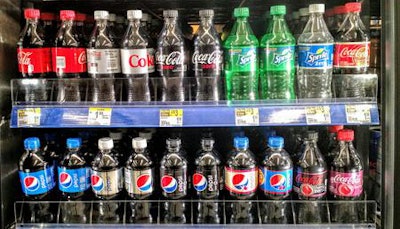 About half of Americans drink a sugary beverage every day.
About half of Americans drink a sugary beverage every day.The authors used search engines and scientific databases to identify public health organizations that accepted money from the Coca-Cola Company and/or PepsiCo between 2011 and 2015. They defined sponsorship as any financial contribution to an organization or its activities and limited their search to national organizations that work in the U.S.
The authors found 96 organizations, including one dental group and five federal government organizations, that accepted money from one or both of the companies.
The National Dental Association (NDA) accepted $215,000 from Coca-Cola between 2011 and 2014. According to its website, the NDA seeks to promote oral health equity among people of color with the goals of improving oral healthcare delivery in underserved communities and improving educational opportunities for minorities.
The majority of Coca-Cola's sponsorship, $200,000, supported the NDA's Health Now program, which operates mobile clinics in underserved, urban communities. In addition, $10,000 went to the NDA's Centennial Anniversary Convention in 2013, and $5,000 supported the Women's Health Symposium in 2011.
Despite several emails and a phone call, the NDA could not be reached by press time for comment.
Federal programs took soda money, too
In addition, Coca-Cola gave nearly $3 million to the U.S. Department of Health and Human Services through various foundations. Specifically, the Centers for Disease Control and Prevention's CDC Foundation took about $1.1 million from the soda company. Although the foundation hasn't accepted money since 2012, most of the sponsorship funds went to "build global capacity for NCD [noncommunicable disease] prevention."
The Foundation for the National Institutes of Health also accepted $1.75 million from Coca-Cola. Most of the money went to sponsor the Red Dress fashion show, which seeks to raise awareness about heart disease in women.
Neither of the foundations could be reached by press time for comment.
“These sponsorships are a clear-cut conflict of interest.”
Regardless of intent, accepting money from a soda company is a conflict of interest, according to Aaron, and previous studies on sponsorship from tobacco and alcohol companies have shown sponsorship is a form of marketing. In this study, Aaron and Siegel cited an example where Save the Children dropped its support of soda taxes after receiving more than $5 million from the Coca-Cola Company and PepsiCo.
"These sponsorships are a clear-cut conflict of interest, shown by soda companies' aggressive lobbying against public health legislation," Aaron said. "Given this lobbying, there is little justification for health organizations to accept this money."
How many organizations accept soda money?
It is important to note that the list of 96 organizations is far from complete. Coca-Cola was found to sponsor 99% of the 96 organizations, which may be because the company recently decided to disclose its sponsorship on its website. PepsiCo, however, has not done so, and therefore its sponsorship efforts are likely underreported. The authors also did not look at sponsorship from smaller soda companies or for regional organizations.
In addition, because the authors searched using general health terms, they may have missed some dental organizations. A search revealed the International College of Dentists also accepted $35,000 from Coca-Cola for "support for conference" in 2012.
However, dental organizations may also be less likely to accept money from soda companies because they have already been criticized for doing so. For example, in 2003, the American Academy of Pediatric Dentistry was slammed by several news and ethics organizations for accepting a $1 million grant from Coca-Cola.
Aaron and Siegel recognized that their list of health organizations that have accepted soda money is not complete, but they still hope their paper encourages organizations currently accepting money from soda companies to reconsider their funding.
"Decreasing soda consumption should be a joint effort between medical and dental professionals," Aaron said. "However, sponsorship of health organizations is reducing support for public health legislation that would reduce soda consumption."



